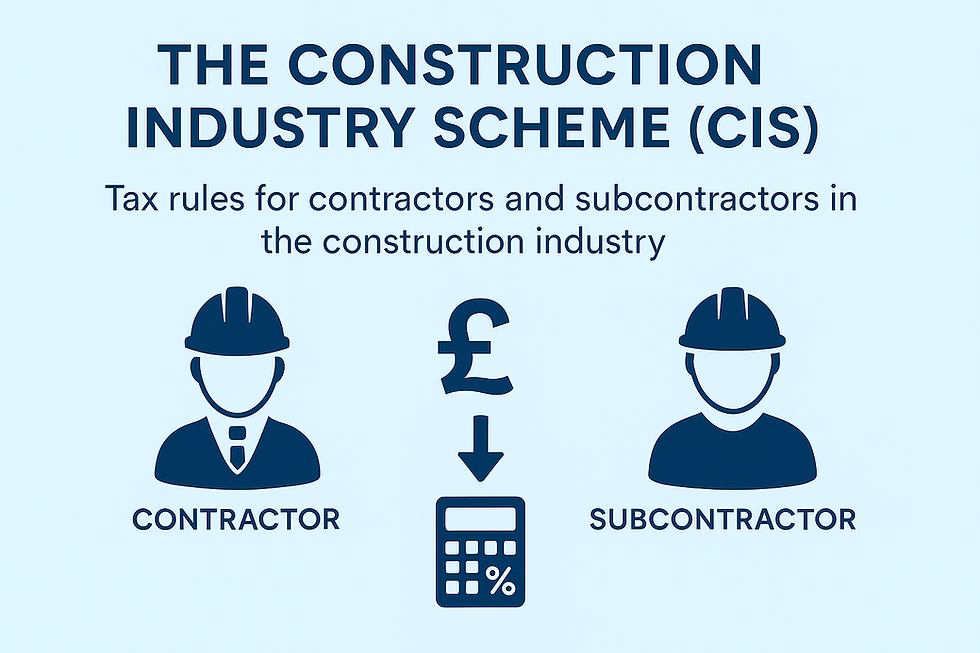Construction Industry Scheme (CIS) Explained: A guide for contractors and Subcontractors
- RNE Accounting

- Apr 3, 2024
- 2 min read
Updated: Apr 21, 2025
The Construction Industry Scheme (CIS) is a set of tax rules from HMRC that governs how payments are made to subcontractors by contractors in the UK construction industry. Understanding how the scheme works is crucial to avoid penalties and ensure you're operating in a tax-efficient way.
How the CIS Works in Practice
In simple terms, CIS turns contractors into tax collectors. If you’re a contractor using subcontractors for construction-related work, you are responsible for deducting a percentage of their pay and passing it to HMRC. These deductions count toward the subcontractor’s tax liability.
Contractors and Subcontractors
A contractor is a business or person who hires subcontractors to carry out construction work.
A subcontractor is someone hired by a contractor to do that work.
A business can be both a contractor and subcontractor under the scheme.
The CIS applies to all business structures — whether you're a limited company, sole trader, or partnership.

Your Responsibilities Under CIS
If You're a Contractor
You must:
✅ Deduct tax (20% for registered subcontractors, 30% for unregistered)
✅ Submit monthly CIS Returns to HMRC
✅ Provide payment and deduction statements to subcontractors
✅ Pay deductions to HMRC on time
If You're a Subcontractor
You must:
💡 You don’t have to register, but unregistered subcontractors are taxed at 30% instead of 20%.
💡 You must declare income and deductions on your Self Assessment Tax Return.
💡 You may be eligible for a CIS tax refund if deductions exceed your final tax bill.
How to Register for CIS
For Contractors:
Register via your Government Gateway account as an employer (this includes PAYE setup): Register as a contractor
For Subcontractors:
Sign up through your Government Gateway account: Register as a subcontractor
Reclaiming Overpaid CIS Tax
If you're a subcontractor, there’s a high chance you've overpaid tax throughout the year due to CIS deductions not accounting for your personal tax-free allowance or business expenses.
✅ You can reclaim overpaid tax via your Self Assessment tax return each year. If you're a limited company, the refund is claimed through your company’s payroll scheme.
If you're unsure about your CIS responsibilities or need help registering and staying compliant, get in touch with a qualified accountant today.





Comments